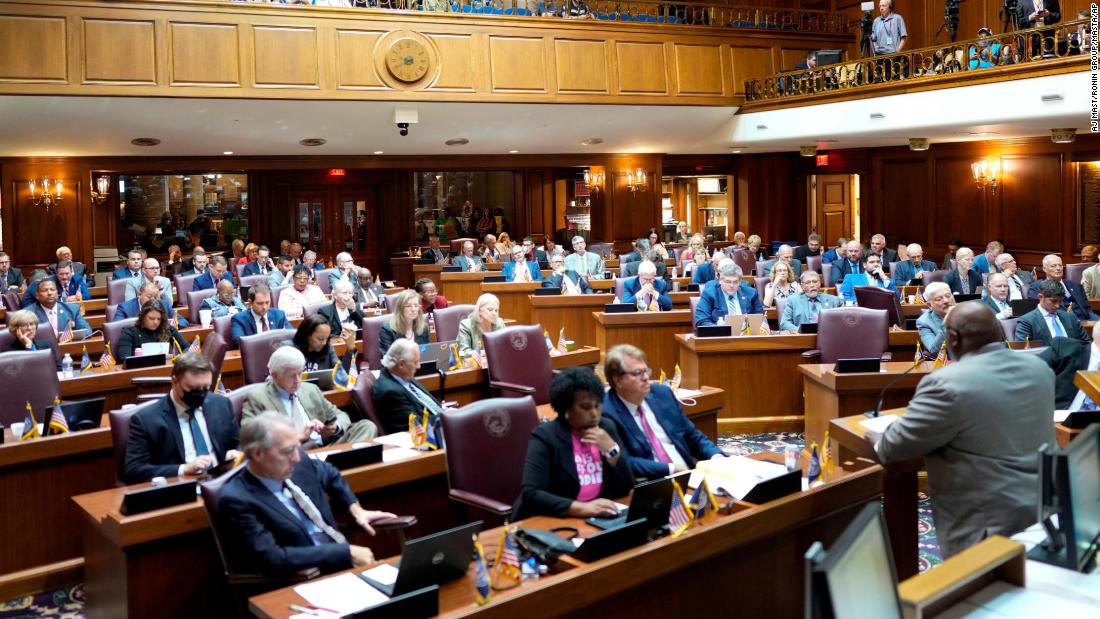

The Indiana House and Senate passed the GOP-sponsored bill earlier Friday.
The new law provides exceptions for when the life of the mother is at risk and for fatal fetal anomalies, up to 20 weeks post-fertilization. It also allows exceptions for some abortions if the pregnancy was a result of rape or incest. It will go into effect on September 15.
Current Indiana law allows abortions up to 20 weeks after fertilization (or 22 weeks after the mother’s last menstrual period).
On Thursday, the Indiana House rejected Republican-sponsored amendments that would have removed the exceptions for rape, incest and fatal fetal anomalies from the bill. Members of House Republican leadership were divided as Speaker Todd Huston and Speaker Pro Tempore Mike Karickhoff voted against the amendments, while Majority Leader Matt Lehman backed the amendments.
A House amendment also failed Thursday that would have placed a non-binding question on the 2022 general election ballot as to whether abortion should remain legal in Indiana.
White House press secretary Karine Jean Pierre slammed the new law in a statement Saturday, calling the bill’s passage “another radical step by Republican legislators to take away women’s reproductive rights and freedom, and put personal health care decisions in the hands of politicians rather than women and their doctors.”
Emotional debate
Friday’s vote in the state House followed an emotional and sometimes contentious debate during which protesters’ cheers and jeers could be heard amid lawmakers’ speeches.
GOP House Rep. John Jacob of Indianapolis, who supports a total ban on abortion, said on the House floor Friday said he would not support the bill because it “regulates abortion, which is baby murder,” while calling on his colleagues to repent before God.
Democratic Rep. Renee Pack of Indianapolis later fired back at Jacob and spoke of her own abortion in 1990 when she served in the US military.
“It took me getting to this statehouse for my colleagues to call me a murderer. I had to get that kind of abuse in this room, in this chamber. Sir, I am not a murderer, and my sisters are not murderers either,” Pack said on Friday. “We are pro-choice. That is what we are. We believe that we have command over our own bodies.”
During Friday’s debate, lawmakers on both sides of the aisle lamented the time crunch they were under to consider such a difficult topic.
“We are all trying, we are all discerning, none of us are sleeping, none of us are doing well. We’re walking around with … knots in our stomachs,” state Rep. Ann Vermilion, a Republican from Marion, said on the floor Friday ahead of the vote.
“Everyone of us, 150, have cried this week and we are all trying to do the will of the people while equally being true to our faith and our core beliefs,” she said.
The Indiana doctor who provided abortion services for the 10-year-old girl said the Indiana abortion bill “is going to hurt Hoosier women.”
“Medicine is not about exceptions,” Dr. Caitlin Bernard told CNN’s Brianna Keilar on “New Day” earlier Friday. “I can’t even begin to tell you how many patients I see in very unique situations that can’t fit in to those exceptions, that can’t have a list of what I can and can’t do. They can’t wait to check with their lawyer, I can’t wait to check with my lawyer, I need to be able to take care of patients when and where they need that care.”
This story has been updated with additional reaction.
CNN’s Donald Judd contributed to this report.
